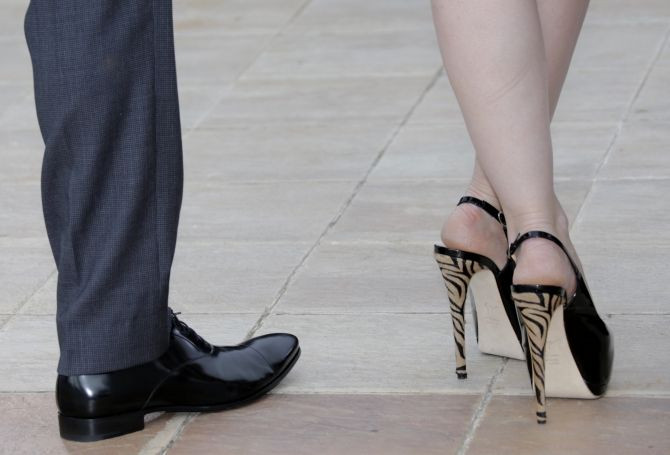You Can Judge 90 Percent of a Stranger's Personal Characteristics Just by Looking at Their Shoes

You can accurately judge a person just by looking at their shoes, psychologists say.
Researchers at the University of Kansas found that people were able to correctly judge a stranger's age, gender, income, political affiliation, emotional and other important personality traits just by looking at the person's shoes.
Lead researcher Omri Gillath found that by examining the style, cost, color of condition of the shoe, participants were able to guess about 90 percent of the of the owner's personal characteristics.
The study, published online in the August 2012 edition of the Journal of Research in Personality, consisted of 63 students who looked at photographs showing 208 different pairs of shoes that belonged to volunteers in the experiment.
Researchers had asked each of the volunteers to fill out a personality questionnaire and to provide their most frequently worn shoes for the experiment.
The 63 observers were then asked to look at each pair and guess the gender, age, social status and different personality traits of the owner, like whether the owner was an extrovert or introvert, liberal or conservative and the degree of their emotional stability, agreeableness, conscientiousness and openness.
Researchers found that observers did well in guessing characteristics of the volunteers in almost all categories, and concluded that people do wear shoes that reveal their personality, whether they intend to or not.
Expensive shoes belonged to high earners, flashy and colorful footwear belonged to extroverts and shoes that were not new but appeared to be spotless belonged to conscientious types.
While some of the clues like the ones already described were obvious, other clues were more surprising.
Practical and functional shoes generally belong to agreeable people, ankle boots fit with more aggressive personalities and uncomfortable looking shoes were worn by calm personalities.
Participants were able to most accurately judge a person's age, gender and income followed by their emotional stability and agreeableness.
In psychology, emotional stability is an umbrella term that includes a person's fear of abandonment, rejection issues and the ability to handle different kinds of relationships.
People with "attachment anxiety" or people that were most worried about their relationships generally had brand new and well-kept shoes. Researchers suggest that this may be because they worry so much about their appearance and what others may think of them.
Not surprisingly, liberal thinkers, who many think of as flip-flop wearing hippies, wear shabbier and less expensive shoes.
"Shoes convey a thin but useful slice of information about their wearers," the authors wrote. "Shoes serve a practical purpose, and also serve as nonverbal cues with symbolic messages. People tend to pay attention to the shoes they and others wear."
However, researchers noted that participants were not able to accurately judge that volunteers who wore the most boring looking shoes found it hard to form relationships.
Volunteers who had boring shoes described themselves as 'aloof and repressive' in their emotions and do not care what others think of them so they do not stand out in their general appearance.
"Shoes have great variety of styles, brands, looks, and functions. Because of this variety, shoes can carry individual difference information, but do they? We suggest that the answer is yes," they concluded.
However, psychologists noted that rarely some people will purposely choose shoes just to convey a certain public image that is different from their real personality.



























